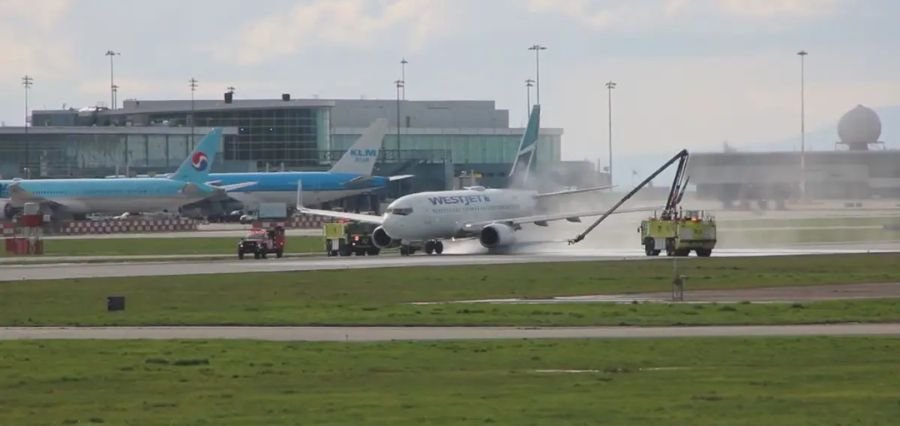Prime Highlights
- WestJet plane landing in Tampa from Vancouver experienced a tailpipe engine blaze during landing.
- Prompt action resulted in emergency slide evacuation of 50 individuals without any injury reported.
Key Facts
- There was a fire outbreak following engine shutdown at the gate that was effectively suppressed by the internal fire suppression system of the airplane.
- The Canadian Transportation Safety Board has initiated an official investigation.
Key Background
A standard Tampa, Fla., to Vancouver International Airport WestJet flight became a thriller after it arrived when one of the plane’s engines was discovered to have a tailpipe fire. The blaze flared late Saturday evening when the plane had only just reached the gate and the engines were being shut down. Despite the fact that the fire was contained and posed no major threat to nearby airport structures, safety procedures were immediately triggered.
The aircraft’s on-board fire-suppression system also automatically engaged and smothered the flames just a few seconds from when they would have been ignited, officials noted. However, detection of smoke and consequent confirmed fire led to a full-scale emergency situation, which involved an evacuation of crew and passengers immediately.
Around 50 passengers evacuated from the plane using inflatable emergency slides. This standard safety routine has to be performed whenever there is possible application with fire or hazardous smoke, particularly for planes that have raised doorways on commercial airliners. Due to the smooth coordination between the cabin crew and Vancouver airport’s rescue team, nobody was injured while evacuating.
WestJet commended the crew and emergency responders for their professionalism in that safety comes first in every operational situation. The airline then approved an investigation of the crash with the Transportation Safety Board of Canada, which dispatched investigators to identify the actual cause of the blaze. Engine performance, fire suppression system operation, and compliance with evacuation procedures are some of the areas that will be investigated.
Although engine fires are rare, aviation security requires swift containment and protection of passengers. This accident highlights the importance of emergency readiness in airline travel and the stringent response policies of the airline industry. The ultimate ruling of the safety board can have an impact on revised safety inspections and fire prevention policies of commercial fleets in the future.
Read More: Nvidia Set to Resume H20 GPU Sales in China Amid Regulatory Shift




